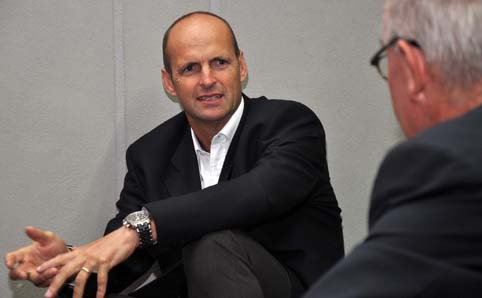Latest News Archive
Please select Category, Year, and then Month to display items
12 October 2020
|
Story Dr Cindé Greyling
|
Photo Supplied
 Exercise and nutrition can work wonders for your mental health – you don’t even have to ‘feel like’ or ‘enjoy’ moving around and eating well for it to work – it does its thing anyway.
Exercise and nutrition can work wonders for your mental health – you don’t even have to ‘feel like’ or ‘enjoy’ moving around and eating well for it to work – it does its thing anyway.
Nowadays, people talk about mental health like it is the common cold – which is good! But do you know what it really means? Being mentally healthy does not only refer to the absence of a mental illness but includes your emotional and social well-being. One would almost want to add physical well-being too, since a healthy body does indeed support a healthy mind. However, since so many people consider themselves ‘mental health experts’, some myths have been sold as truths.
Myth #1 – You are doomed.
Nope. Never. You are never doomed. There is always help. Mental-health therapies range from self-help, talk therapy, medication, to hospitalisation in some cases. Somewhere on this spectrum of treatments, there will be something that works for you. But you must be willing to get the help and do the work. For starters, exercise and nutrition can work wonders – you do not even have to ‘feel like’ or ‘enjoy’ moving around and eating well for it to work – it does its thing anyway.
Myth #2 – It won’t affect you.
It may. Research suggests that one in five people may suffer from a mental illness at some point in their lives. Being well now does not mean that it will stay that way. Biological and environmental factors both impact your mental health. Hopefully not, but at some point, you may experience an event that affects your mental health.
To remain integrated in a community is always beneficial
for anyone suffering from a mental or physical condition.
Myth #3 – Someone struggling with mental health must be left alone.
Hardly! To remain integrated in a community is always beneficial for anyone suffering from a mental or physical condition. You do not need to fix them, but to remain a friend. Continue to invite them, even if they decline. Do not judge, and do not try to understand. Just stay around.
Go and be kind to yourself, and to those around you.
Making a difference is the most important thing for Gary Kirsten
2012-05-16
 |
|
Gary Kirsten
16 May 2012
|
“Can I make a difference in someone’s life?” This was the central driving force for Gary Kirsten, head coach of the 2011 World Cup winning Indian cricket team. He currently coaches the Proteas.
Gary was the first guest speaker at a new series of lectures at our Business School. Challenges and solutions in management will be highlighted in the series. In his lecture, Gary was interviewed by Prof. Johann Coetzee, Extraordinary Professor at the Business School. The audience got a glimpse of the person often seen on television screens and they travelled with him from his childhood days at the Newlands Cricket Ground to his days in New Delhi as head coach of the Indian team.
His challenge in India was to develop a new culture in a team with very valuable and expensive brands. His light-bulb moment occurred on a team-building visit to Australia. His question to the team was what he could do for them and what they would expect from him. The turning point was Sachin Tendulkar’s answer: I would like you to be my friend. Tendulkar’s wife’s comment on the winning night was the proof of his success. She said: “The last three years were the happiest in my husband’s life.”
Gary said it was an incredible privilege to make a difference in people’s lives. “I wake up asking myself where I can make a difference in someone’s life. You must create an environment for people to enjoy the game, challenge one another and thrive.”
He is confident that the Protea team has the potential to be a great cricket team. He said the upcoming England tour is a test. “This tour will test us to be the top team in the following years. I would like to set them up for the best chance to win.”